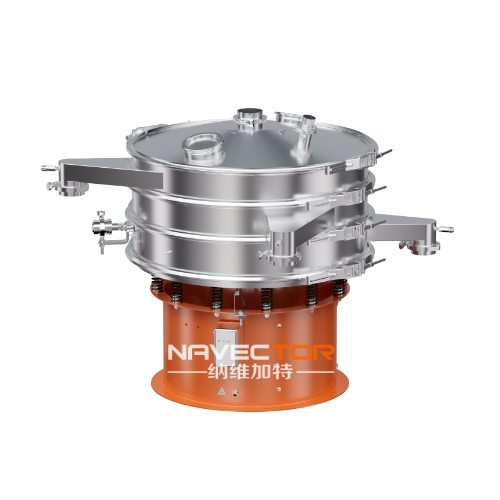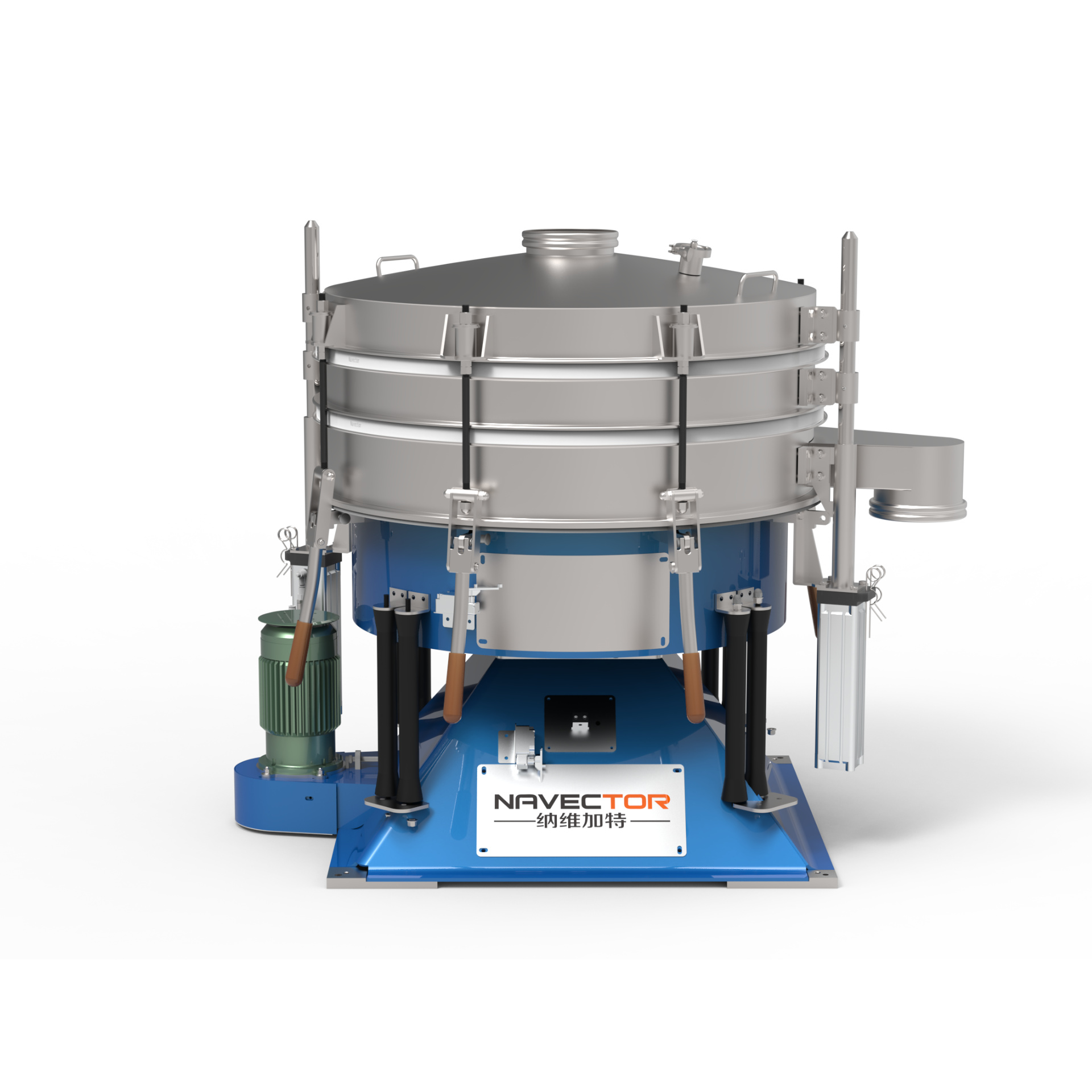From Demand to Implementation: A Complete Analysis of Navector’s Customized Service Process
2025/11/21
In the field of powder processing, screening serves as a core step for quality control and production efficiency, often becoming a key bottleneck in capacity upgrades. With years of deep industry experience, Navector precisely identifies the core screening pain points of enterprises and provides end-to-end support through customized services—from demand insight to technical implementation—helping clients achieve efficient and stable improvements in quality and production capacity.
Ⅰ. Screening Challenges: Core Issues Faced by Enterprises
In industrial production, the complexity of screening far exceeds the adaptability of conventional equipment, and most enterprises encounter multiple difficulties.
-
Complex and variable material characteristics
Materials vary significantly across industries. The ultra-fine particle size of lithium battery materials, the high purity requirements of pharmaceutical powders, the sticky nature of food ingredients, and the corrosiveness of chemical materials make it difficult for standard equipment to provide precise matches.
-
Conflict between screening accuracy and efficiency
The demand for high-precision classification or fine filtration continues to grow. However, when high-precision screening is required, throughput often decreases. At the same time, production efficiency and output are key concerns for enterprises, and precision should not come at the cost of productivity.
-
Equipment compatibility and space constraints
Some production lines have limited space, making it difficult to integrate standard screening equipment directly. Installation, commissioning, and coordination with other production line equipment impose high requirements on equipment structure, size, and maintenance methods.
-
Maintenance and reliability issues
During long-term operation, screening equipment can suffer from mesh clogging, high replacement frequency, and significant maintenance costs. For special materials—such as high-viscosity slurries or easily agglomerated powders—equipment stability and continuous operation present major challenges.
-
Disjointed service support
Traditional equipment suppliers often prioritize sales over service, lacking end-to-end support from initial diagnosis to ongoing maintenance. Delayed responses to equipment issues can seriously disrupt production continuity.
Ⅱ. Customized Services: The Key Path to Solving Screening Problems
As personalized demands become increasingly prominent, customized services have become the core choice for enterprises to overcome screening challenges. Their importance is reflected in multi-dimensional value creation.
Customized services design solutions based on the enterprise’s actual material characteristics, production capacity goals, and operating environment, fundamentally preventing issues of “mismatch between equipment and demand.”
-
Overcoming technical barriers
For special screening challenges, targeted R&D and innovative design enable personalized solutions such as ultra-fine separation, anti-clogging screening, and efficient purification, helping enterprises break through technical bottlenecks.
-
Reducing maintenance and operational costs
By selecting screening meshes suitable for material characteristics and implementing more rational cleaning mechanisms and maintenance strategies, downtime and replacement frequency can be minimized. Customized equipment can also be more easily integrated into automation systems (e.g., PLC control, remote monitoring), reducing labor and maintenance complexity.
-
Enhancing product competitiveness and sustainability
High-quality screening improves final product performance, such as purity and particle size consistency, increasing product competitiveness. In specific industries (e.g., new energy, 3D printing metal powders), recycling and reuse are crucial. Customized solutions enable efficient, low-loss material recovery.
Customized services go beyond single equipment delivery, encompassing full lifecycle technical support and upgrade services, ensuring long-term adaptability to enterprise development needs and extending equipment value.
Ⅲ. Analysis of Navector’s Customized Service Process


-
Demand Diagnosis: Precisely Identifying Core Requirements
Navector conducts demand diagnosis through multi-dimensional communication and professional testing. Initially, via phone, online meetings, or on-site visits, the company comprehensively understands the customer’s material characteristics, production capacity requirements, precision standards, and operational environment constraints. Simultaneously, feasibility analysis is carried out on customer materials through laboratory sample tests or pilot-scale equipment, identifying potential pain points and risks in the screening process.
-
Solution Design: Deep Integration of Technology and Requirements
Once customer requirements are clarified, Navector’s technical experts propose multiple screening solutions (such as vibrating screens, centrifugal screens, etc.) and validate their effectiveness through prototype testing. This stage aims to verify whether screening efficiency, precision, and equipment stability meet customer expectations, providing data support for the final selection.
Based on validation results and on-site conditions, Navector designs customized equipment. The design scope includes screen layers, mesh sizes, cleaning methods, feed and discharge structures, machine dimensions, and other specifications.
-
Precision Manufacturing: Controlling Every Quality Detail
After confirming the customized solution, Navector enters the manufacturing phase. Using advanced production techniques and a strict quality management system, the company fabricates the customized equipment. Every detail is strictly controlled according to the design requirements to ensure high stability and reliability of the equipment upon delivery.
-
On-site Delivery: Efficient Adaptation to Production Scenarios
Upon completion of manufacturing, Navector dispatches a professional installation and commissioning team to the customer site. The team arranges the equipment according to the layout and process requirements and fine-tunes parameters such as vibration, feeding, and discharge. After commissioning, customer operators receive training to operate and maintain the equipment safely and proficiently.
-
Operation and Maintenance Support: Continuous Lifecycle Enablement
Once the equipment is in operation, Navector provides long-term after-sales support, including regular maintenance, mesh replacement recommendations, and technical assistance. Additionally, through follow-ups and operational data analysis, the company collaborates with customers to summarize operational experience and continuously optimize equipment parameters and maintenance plans, ensuring long-term stable and efficient system performance.
In the context of increasingly complex materials and high-precision requirements becoming the new industrial norm, customized screening services are critical for enterprises to overcome screening bottlenecks and improve production efficiency and product quality. Navector (Shanghai) Screening Technology Co., Ltd., leveraging its deep technical expertise and systematic service capabilities, offers precise, efficient, and reliable customized screening solutions through an integrated process covering research, design, manufacturing, commissioning, and after-sales support.
Whether applied to new material research or industrial production line integration, customized solutions help customers reduce costs, increase efficiency, and enhance quality. Looking forward, Navector will continue to focus on “customer needs,” deepen technological innovation, and promote a more precise, intelligent, and sustainable development of the screening industry.

